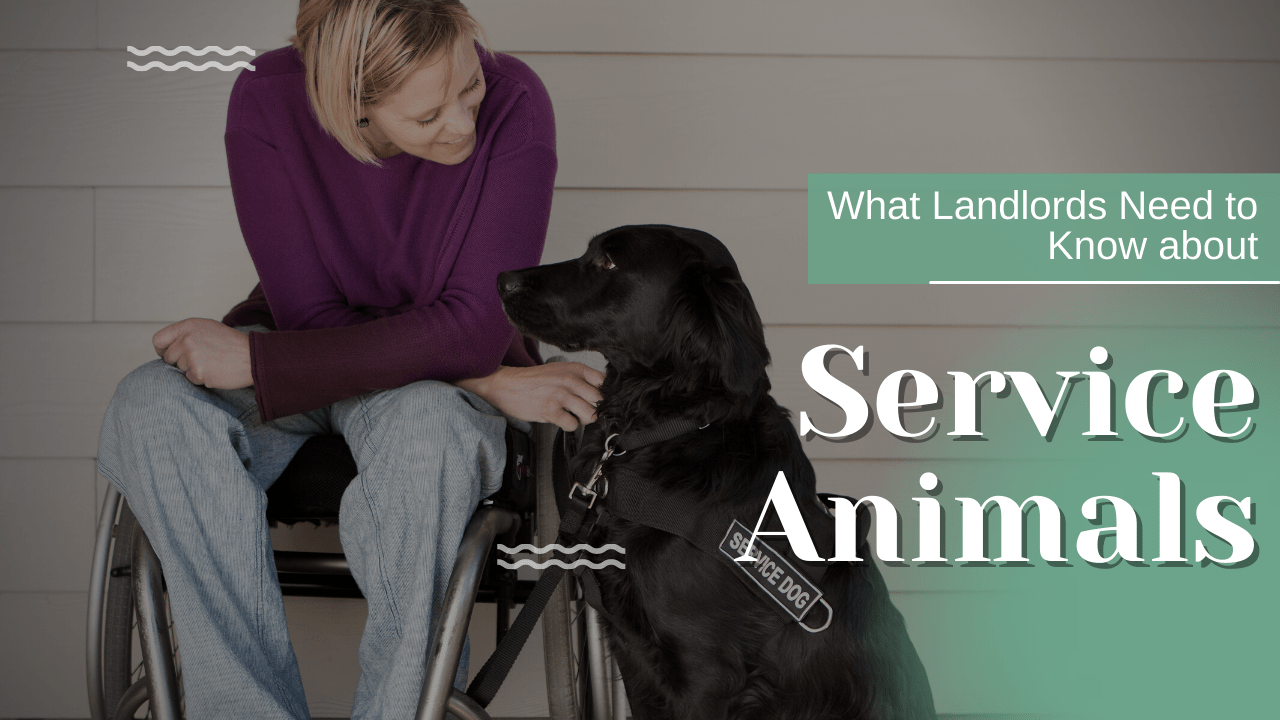Many of the landlords we work with choose to restrict the pets they’ll allow in their properties. This is a personal choice, and it’s up to you whether you allow dogs, cats, birds, everything, or nothing.
Those are pets.
When it comes to service animals, you don’t necessarily have as much control over what you’re able to allow or disallow.
One of the costliest mistakes that rental property owners make is not knowing the difference between a service animal and a pet.
We’re here to help.
What is a Service Animal?
When we’re talking about pets and service animals, there are two specific laws that govern how you treat tenants and applicants with disabilities. These are the Fair Housing Act and the Americans with Disabilities Act.
Both of these laws protect people with physical, emotional, and intellectual disabilities against discrimination. You cannot deny an otherwise qualified tenant from renting your home because she has a wheelchair. You also cannot discriminate against an otherwise qualified tenant from renting your home because he has a service animal.
These laws require landlords to make reasonable accommodations for their tenants with disabilities. This might mean shower bars or wider doorways or a dedicated parking space that’s closer to the building. It might also mean allowing a dog or a cat or some other animal to move into the property even if you don’t allow pets.
The service animal is seen as an accommodation, not as a pet. Therefore, not only do you have to allow it; you also cannot charge a pet deposit, pet fee, or pet rent.
Service Animal Requirements and Restrictions
When the tenant has an obvious physical or intellectual disability, you cannot ask what the service animal is for. Obviously, a person who is blind should not have to explain her need for a Seeing Eye Dog. However, you can ask for documentation if the disability is not immediately apparent. The tenant will need to supply documentation from a medical professional explaining the disability and why the animal is required.
It’s a good idea to be careful here. Asking for documentation is one thing; being abrasive and expressing doubt that a service or support animal is needed can get you in trouble.
Protecting Your Property against Damage
 One of the reasons some landlords refuse to allow pets is because they’re worried about the damage that an animal can do.
One of the reasons some landlords refuse to allow pets is because they’re worried about the damage that an animal can do.
You can still require a security deposit. That security deposit will likely cover any damage the service animal leaves behind. And, the tenant is still required to clean up after the animal and ensure it isn’t a nuisance to other tenants or the property.
Navigating the pet versus service animal landscape is not always easy. The Fair Housing Act and ADA laws are strict, and violating them comes with huge penalties. We advise caution and education.
If you have any questions about service animals, support animals, or pets, please contact us at Southern Living, and we’d be happy to share some additional expertise and help you navigate this complex topic. Southern Living Properties is a Charlotte property management company serving single-family & multifamily owners throughout the Queen City metropolitan area and in South Carolina cities in York and Lancaster Counties, including Rock Hill, Indian Land and Fort Mill.


